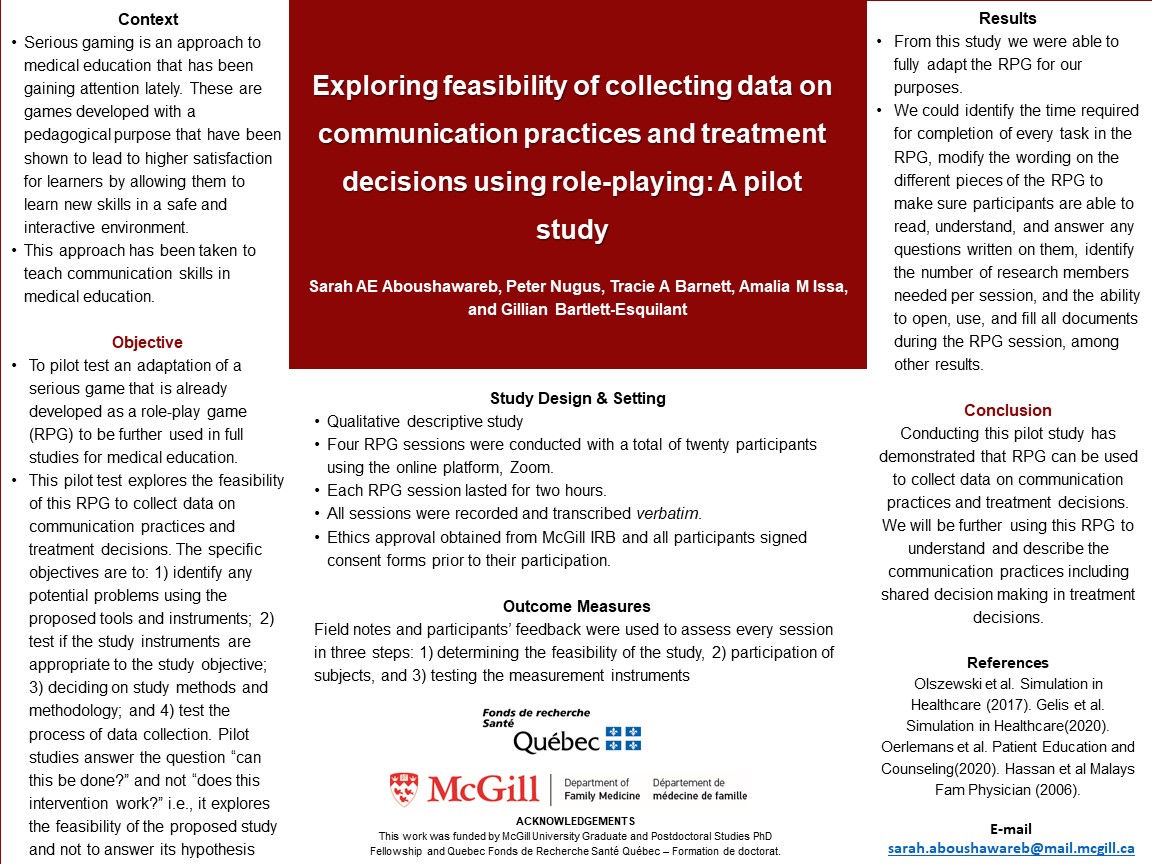SRFP043: Exploring feasibility of collecting data on communication practices and treatment decisions using role-playing: A pilot study
Sarah Aboushawareb, BPharm, MSc, PhD student; Gillian Bartlett-Esquilant, PhD; Peter Nugus, PhD, BA, MA, MEd; Amalia Issa, PhD, MPH; Tracie Barnett, PhD
Context: Serious gaming is an approach to medical education that has been gaining attention lately. These are games developed with a pedagogical purpose that have been shown to lead to higher satisfaction for learners by allowing them to learn new skills in a safe and interactive environment. This approach has been taken to teach communication skills in medical education. Objective: To pilot test an adaptation of a serious game that is already developed as a role-play game (RPG) to be further used in full studies for medical education. This pilot test explores the feasibility of this RPG to collect data on communication practices and treatment decisions. The specific objectives are to: 1) identify any potential problems using the proposed tools and instruments; 2) test if the study instruments are appropriate to the study objective; 3) deciding on study methods and methodology; and 4) test the process of data collection. Pilot studies answer the question “can this be done?” and not “does this intervention work?” i.e., it explores the feasibility of the proposed study and not to answer its hypothesis Study Design: Qualitative descriptive study. Setting: Pilot study of a virtual serious game that is an RPG. Each session was about 2 hours in length and due to COVID-19 restrictions, all sessions were carried out online using the Zoom platform. Population Studied: Four RPG sessions were carried out with a total of twenty participants. Outcome Measures: Field notes and participants’ feedback were used to assess every session in three steps: 1) determining the feasibility of the study, 2) participation of subjects, and 3) testing the measurement instruments. Results: From this study we were able to fully adapt the RPG for our purposes. We could identify the time required for completion of every task in the RPG, modify the wording on the different pieces of the RPG to make sure participants are able to read, understand, and answer any questions written on them, identify the number of research members needed per session, and the ability to open, use, and fill all documents during the RPG session, among other results. Conclusions: Conducting this pilot study has demonstrated that RPG can be used to collect data on communication practices and treatment decisions. We will be further using this RPG to understand and describe the communication practices including shared decision making in treatment decisions.

Jack Westfall
jwestfall@aafp.org 11/21/2021Thanks for your terrific work on this research. Hope we can connect.